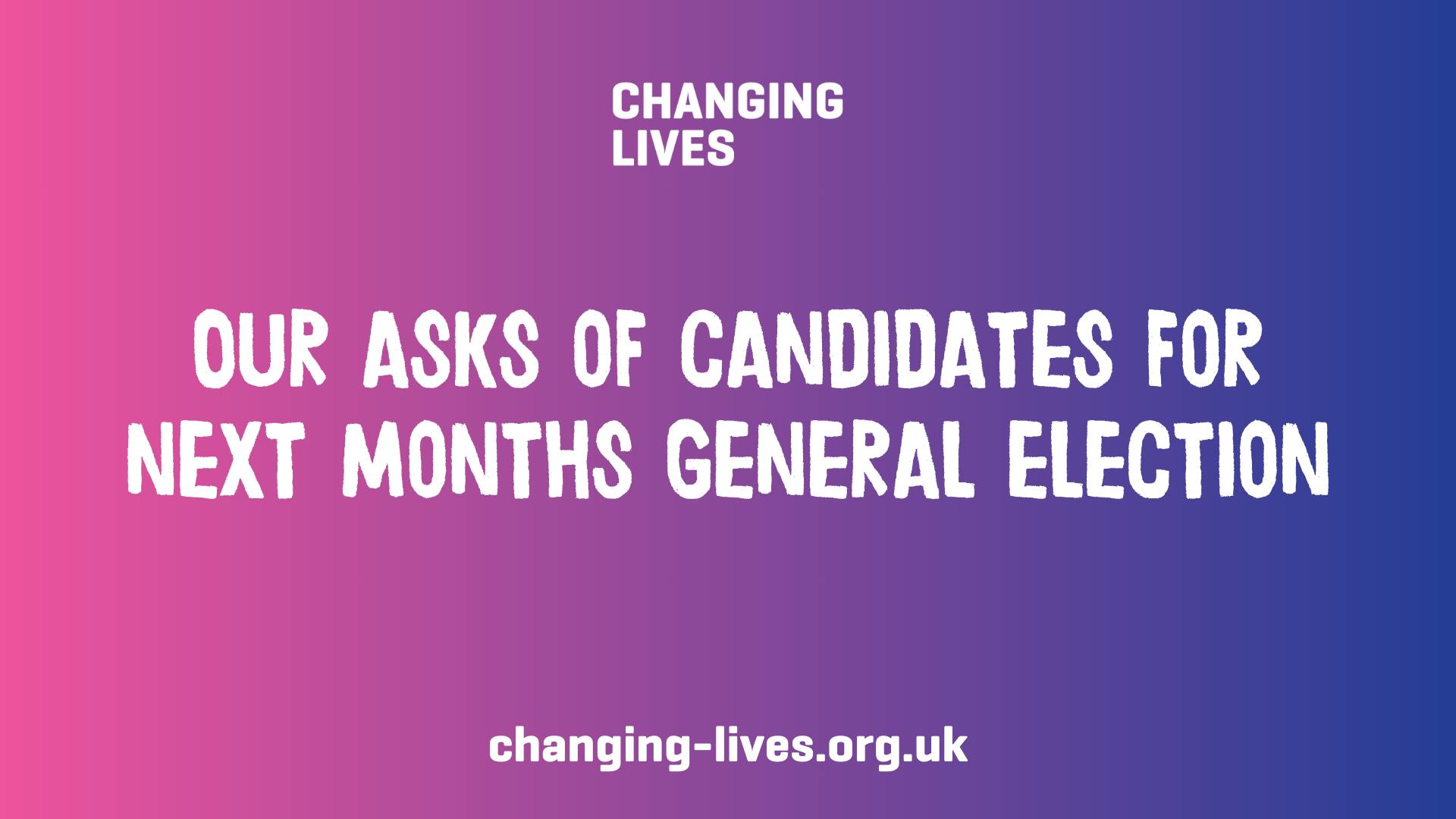Policy Manager Philippa Rousell summarises the postions of the main political parties in the upcoming General Election.
Is the cost of living crisis still going?
That’s a question being debated in the news today as inflation hits 2% - its lowest rate in almost three years and what the Bank of England has been aiming for. For those like us who aren’t economics experts, that basically means that prices aren’t rising as quickly anymore. Some are claiming this as a victory, emphasising how well we’re doing compared to other countries, while others are still concerned about the ongoing cost of living crisis.
For many of the people we support, it was hard to make ends meet even before external factors like the war in Ukraine triggered the recent crisis. Short-term measures like support with energy bills were a lifeline to many, but the underlying issues of a welfare system that does not provide an adequate safety net to keep people out of poverty remains.
“Sanctions are a disgrace and people often struggle with the system that is so difficult to navigate, so they get sanctioned for not being able to!”
So what will the next government do about it?
This is the first of a series of blogs analysing what the main party manifestos say about themes that affect the people who access our services. We won’t be saying who you should vote for, but we will be comparing what each party is proposing to what we’ve been calling for in our manifesto Breaking Down Barriers.
We believe that, in order to reduce levels of poverty, there needs to be reform to the welfare system. We would like to see short-term measures to address the immediate issues with the Universal Credit system which are leaving people destitute, as well as long-term reform to the welfare system so that it supports people out of poverty rather than entrenching poverty further.
We would like short-term measures to include:
- Increasing both Universal Credit rates and the benefit cap
- Increasing rates for people under 25 to the same level as those aged 25 or over
- Replacing advance payments for Universal Credit with a non-repayable grant
- Restricting the amount that can be deducted from the Universal Credit Standard Allowance
Long-term we would like to see a welfare system that is incentive-based rather than sanction-based, and that ensures that people’s ability to afford the basics is not dependent on their work-related activity.
Do any of the parties have similar plans (Answer: Yes!)
Conservative
The Conservative manifesto primarily has measures aimed at people in work and pensioners. This includes reducing how much National Insurance people by, and aiming to eventually remove it completely, and introducing the Triple Lock Plus for pensions so that nobody relying solely on the State Pension will have to pay income tax.
Their approach to welfare is more about reducing how much it costs. The main focus is people of working age with a disability or health condition. Their plans, announced even before the general election, is to reform disability benefits and tighten up how people are assessed as fit for work. This will include moving responsibility for issuing fit notes away from GPs to specialist work and health professionals.
The Conservatives are also focused on making sure that being on benefits remains a safety net, not a lifestyle choice. They plan to introduce tougher sanctions, meaning that people who refuse to take up suitable jobs after 12 months on benefits could have their benefits removed entirely.
Labour
Labour plan to review Universal Credit so that it makes work pay and tackles poverty, but haven’t given many specifics. Similarly to the Conservatives, they see good work as the foundation of the approach to tackling poverty so want to get everyone who can work into work, but are more focused on the support needed to make this happen. This will include tackling long wait times for treatment of health conditions, particularly mental health; tackling the backlog of Access to Work claims; and reforming or replacing the Work Capability Assessment alongside a plan to support disable people into work.
Liberal Democrats
The Liberal Democrats have set a target of ending deep poverty within a decade, and plan to establish an independent commission to recommend annual increases in Universal Credit to ensure that people can afford the essentials. They also plan to remove the two-child limit and the benefit cap. They have several plans to improve the current system including reducing the wait for the first Universal Credit payment from five weeks to five days, scrapping the bedroom tax, and giving the full rate of Universal Credit to parents regardless of age. They also plan to replace the sanctions regime with an incentive-based system.
Like the Conservatives and Labour, the Liberal Democrats also have measures aimed at disabled people including bringing Work Capability Assessments in-house and reforming Personal Independence Payment assessments to make the process more transparent and stop unnecessary reassessments.
Green
The Green Party plan to increase Universal Credit and legacy benefits by £40 a week and abolish the two-child benefit cap and bedroom tax. In the long-term, they plan to introduce a universal basic income. For disabled people, they plan to immediately uplift disability benefits by 5% and reform PIP.
Reform UK
Reform plan to reform benefit support and training to help people back into work, with a particular focus on 16-34 year olds. They will incentivise people on benefits into work by lifting the income tax threshold to £20,000, but will also enforce a 2-strike rule for job offers whereby those fit to work must find employment within four months or accept a job after two offers, or otherwise have their benefits withdrawn. Their proposed changes to PIP or Work Capability Assessments are requiring that the assessments are face-to-face and independent medical assessments must be completed to prove eligibility for payments.
As a charity, Changing Lives remains politically neutral and does not endorse any particular party or candidate. We have focused on the main parties that cover the whole of the UK, which means we have not included an analysis of the policies of parties that only operate in Wales, Scotland or Northern Ireland. This is a non-exhaustive analysis of each party’s policies. The full manifesto of each party is available to read here: Conservative, Labour, Liberal Democrat, Green, Reform UK.






